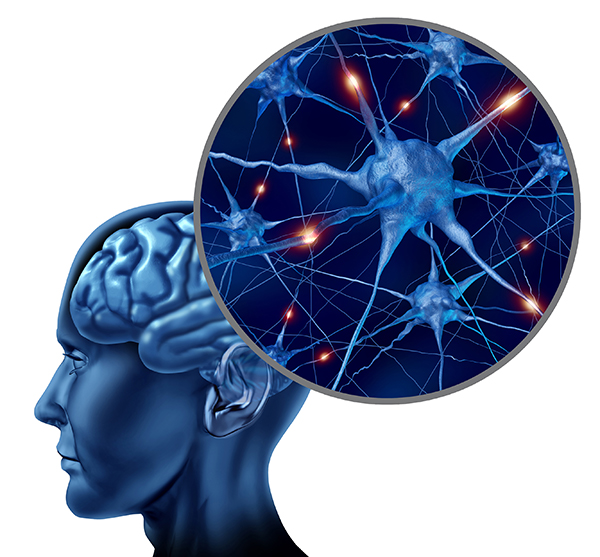Introduction
Now that we’re in the age of COVID, it’s more important than ever to do everything you can to stay healthy and avoid chronic illnesses. Why? Because there is very clear repeatable evidence that people with chronic health conditions like diabetes, obesity, and hypertension (amongst others) were much more seriously impacted by serious symptoms and death as a result of the virus.
Let’s be honest – there are no guarantees about the availability or veracity of vaccines or treatments. It’s no longer an option to be unhealthy, because good health and a strong immune system are your body’s most powerful defenses against dangerous pathogens.
So staying clear of chronic health conditions is a great plan – not just to avoid the painful physical and emotional impacts of the conditions themselves, but because it’s your best passport to protecting yourself and enjoying health and longevity.
There are many factors that we know combine to mobilize chronic diseases, but guess what we find as a common element when we look to the root causes of nearly all of these conditions?
Sugar, sugar, and more sugar…
Look How Much Sugar We’re Eating
Back in 1915, the average sugar consumption per person in America was 17.5 pounds. By 2011 that number had risen to 150 pounds – more than 8 times as much. To put it in perspective, that’s just over 25 teaspoons of sugar per day per person. Can you imagine that?
Now honestly – we’re not all sitting around eating pie and icecream all day – so where does the sugar come from? The answer in many cases is from the food we’re eating that we don’t think of as being sweet. Processed foods and packaged foods typically contain high levels of added sugar, and this has two big downsides. First we’re consuming sugar we don’t need, and second, we get addicted and eat more of the processed foods, ultimately leading to a toxic mix of chronic health issues.
The Soda Habit
Sugary drinks are another major source of problems. In the 1970s, these drinks represented about 4% of average daily calorie intake, but by 2001, the proportion was 9%. In 2008, more than 90% of American children from ages 6 to 11 were consuming as much as 60% of their daily calories intake from sugar-sweetened beverages.
To give an idea of how much sugar is in these drinks, a 20 oz. bottle of Coke contains about 16 teaspoons of high fructose corn syrup.Now maybe you think you’re ok because you’ve dumped the soda habit and are now enjoying popular “energy drinks”? Well most of those are almost as bad – a single 16 oz. energy drink can contain 12 to 14 teaspoons of added sugar.
Sugar Suppresses The Immune System
More than ever you have to be really conscious of the foods you’re putting into your body. Let’s look more closely at some of the dangerous impacts of too much sugar, so you understand why this is so important.
Sugar suppresses the immune system. Consuming 100 grams of sugar (like one of the sugary drinks we talked about earlier) can suppress white blood cell functioning by 40% for at least 5 hours. And just for the record, white blood cells or leukocytes are the cells of the immune system that protect the body against both infectious disease and foreign invaders. So if you think of your immune system as a platoon of 1000 soldiers, it’s as if 400 of them took a 5 hour nap.
More that ever we all need highly functional immune systems to protect us from the sea of pathogens we’re engaging with every day. The immune system is a very sophisticated multi-stage arsenal of weapons that is protecting us 24/7 from bacteria, viruses, and abnormally growing cells (aka Cancer). You want that running at 100% right?
Sugar Leads to Nutrient Deficiency
Like so many important systems in our bodies, our immune system depends on good nutrition, and sugar has an impact there too.
In a 2016 research paper published in openheart, researchers James DiNicolantonio and Amy Berger found that 50 grams of fructose (approximately the amount in a medium soda) can drain the liver ATP that is responsible for metabolism, turning nutrients into usable energy for the body, and detoxifying the body of waste products. As a result, the liver cannot process the nutrients in food, and the body becomes devoid of essential vitamins and minerals. Worse still, sensing the lack of energy, the body increases hunger signals and stimulates appetite – leading to a cascade of overeating the wrong kinds of foods.
Sugar Causes Premature Aging

Let’s face it – we’re all super concerned with looking and feeling young. Even if we’re not obsessed with trying to look like we’re 30 instead of 60, none of us wants the fragile health so often associated with age. So, you’ll be alarmed to hear then that sugar accelerates the aging process.
A 2014 research study published in The American Journal of Public Health Science found that sugar speeds up the cell aging process. Telomeres are structures at the end of our chromosomes and shorter telomeres are associated with the aging process. So, by measuring the telomere lengths, its possible to assess the rate of aging. In a study of 5,309 people, those who drank sugary drinks on a regular basis were shown to have much shorter telomere lengths than individuals who did not drink sugary drinks. That spells “Premature Aging”.
Sugar Ramps Up Inflammation and Chronic Illness
Sugar has a direct causative influence with many chronic illnesses. Beyond these direct causes however it also ramps up inflammation which is now recognized to be the root of nearly all chronic diseases. Sugar is one of the 10 most inflammatory foods, and eating excess amounts is like throwing gasoline on a fire. It literally accelerates a manageable campfire into a roaring blaze. So, no matter what you’re dealing with, too much sugar is likely going to make it much, much worse.
Sugar and Gastrointestinal Illness
Sugar is associated with many problems in the gastrointestinal tract, including indigestion, acidity, malabsorption, and increased risk of some autoimmune diseases including Crohn’s and ulcerative colitis. And its important not to take these conditions lightly. If you’ve ever met anyone who suffers from ulcerative colitis you’ll know how unpleasant and challenging it is to live with.
Cancer Risks of Sugar
High intake of fructose has been directly linked to a significantly increased risk of developing a range of cancers such as brain cancer, pancreatic cancer (up to 53% increased risk), oral cancer (increased 10 to 15%), and prostate cancer (increased 33% risk). Sugar has similarly been shown to feed cancers of the breast, ovaries, rectum, biliary tract, lung, gallbladder, and stomach. The drain on antibody production to deal with these cancers also depletes our immune function, potentially leading to a cascade of other systemic health failures.
Obesity and Diabetes
Fructose consumption is known to induce Leptin resistance, greatly increasing the risk of developing obesity. If you’re not familiar with Leptin, its a hormone predominantly made by adipose cells and enterocytes in the small intestine that helps to regulate energy balance by inhibiting hunger, which in turn diminishes fat storage. Suppressing leptin can lead to ongoing overeating and increased risk of developing obesity.
Type 2 diabetes is associated with years of excessive intake of sugar, wearing out our sugar-regulating system and leading to insulin resistance. Insulin is a hormone that the pancreas makes that allows cells to absorb and use glucose. In people with insulin resistance, the cells are unable to use insulin effectively.
Beyond the direct impacts of the disease itself, Diabetes significantly increases the risk of experiencing other chronic conditions including heart disease, skin diseases, nerve and kidney damage, and Alzheimers. Did you know that it’s estimated that every 30 seconds one leg is amputated due to diabetes?
Sugar and Brain Deterioration
Alarmed by just how many older friends and relatives are dealing with one of the many layers of dementia? Then you need to look closely at sugar…
A clinical study in the journal Diabetologia that spanned over 10 years found that individuals with high blood sugar had a much faster cognitive decline rate than individuals with normal blood sugar levels. Furthermore, those who suffered from type 2 diabetes at the beginning of the study were twice as likely to develop Alzheimer’s disease than healthy individuals.
In another 2013 study in the journal Science Daily, High blood-sugar levels, such as those linked with Type 2 diabetes, were found to make the beta amyloid proteins associated with Alzheimer’s disease dramatically more toxic to cells lining blood vessels in the brain. So one way to look at this is that the downstream effects of the sugar were weaponizing the Alzheimers proteins.

Learn more about what you can do to detox your brain.
Say NO to Artificial Sweeteners
And just in case you’re about to run for the artificial sweetener, know this! Artificial sugars can cause significant problems over the long term and are as dangerous or more so than eating excessive processed sugar. As an example, the artificial sweeteners aspartame (NutraSweet and Equal), saccharin (Sweet’N Low), and sucralose (Splenda) all raise blood sugar levels significantly higher than refined sugar. This results from the artificial sweeteners effect of dramatically changing the makeup of the microorganisms in the gut microbiome.
Think about that for a moment too – modern science recognizes that the gut plays a key role in literally all processes in the body, including our cognitive abilities. So why would you want to mess with your microbiome?
Kicking The Sugar Habit
Yes we know – you love sweet things, and its really hard to let them go. If nothing else, we humans are united in our love of sugar! But it just isn’t worth everything you and your loved ones are going to lose to satisfy the craving.
The good news is that once you’ve taken the plunge to cut back, the pain of withdrawal is quite short-lived. Any you’ll emerge to a new world that is less stressful, less angry, less reactive, and more chill. You’ll have more control of your thoughts and emotions and more than likely the people around you will appreciate you even more. You’ll be less like Anxious Annie and more like Yoda!
Switch to a Clean Burning Diet
One of the best ways we know to cut down on sugar is to go with a mediterranean style diet that includes healthy fats like olives, good quality extra virgin olive oils, and avocados. Simple grilled fish and lean meats are great, together with lightly steamed or sauteed non-starchy vegetables. Salads are great too. We’ve found that the healthy fats and high quality proteins help you to feel satisfied and balanced and less likely to want to grab the next sweet thing.
Stay away from sodas – that’s essential! Processed foods – particularly carbs and anything starchy (yes we mean bread!) are almost instantly converted to sugar by your body, so it’s important to avoid them completely for now too. Green tea is great and so of course clean water.
Supplements to Help Survive Sugar Withdrawal
Eliminating sugar from your diet cold turkey is challenging for most of us, but fortunately, there are a number of high quality supplements that can help cut your cravings noticeably. The following are suggestions for supplements to help your body (and brain!) resist sugar and get to a point where you stop thinking about it.
- Gymnema has been used in Ayurvedic medicine for centuries and is renowned for its ability to control blood sugar levels and suppress the cravings for sweets.
- L-glutamine is an amino acid that heals body tissue, especially in the digestive tract. It is known as the calming amino acid and is effective for reducing sugar and alcohol cravings as well as anxiety.
- Chromium works to stabilize blood sugar levels, which lessens the brain’s demand for excess sugar when you’re feeling hungry.
- Magnesium is an essential mineral used in the regulation of glucose, insulin, and the neurotransmitter dopamine. A deficiency can lead to intense sugar cravings.
- B-Vitamins curb sugar cravings by supporting the nervous system and the metabolism of carbohydrates. Many of us are deficient in this essential vitamin family because of stress, poor diet, and environmental toxicity.
- Fish Oil helps to reduce carbohydrate cravings and control appetite by enhancing insulin sensitivity. It helps your body respond more effectively to nutrients, meaning that you’re less likely to reach for sweet treats!

Dr Josse Ford
Josse Ford is the Founder and Director of the Alchemy Radiant Health clinic in Encinitas, California. She specializes in the integration of Chinese medicine and functional medicine to treat the whole human holistically and to focus on the root cause of illness



